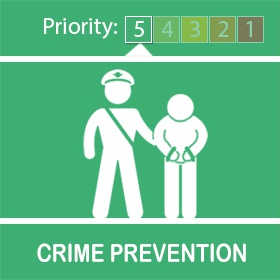
Due to coronavirus, more people will be doing their festive shopping online this year. This means more opportunities for hackers to carry out cyber attacks.
| They often do this by targeting people and businesses using: * email and website scams * malware - software that can damage your device or let a hacker in * If hackers get into your device or accounts, they could access your money, your personal information, or information about your business. You can improve your cyber security by taking six actions: 1 - Use a strong and separate password for your email If a hacker gets into your email, they could: * reset your other account passwords * access information you have saved about yourself or your business * Your email password should be strong and different to all your other passwords. This will make it harder to crack or guess. 2 - Create strong passwords using 3 random words When you use different passwords for your important accounts, it can be hard to remember them all. A good way to create strong, memorable passwords is by using 3 random words. Do not use words that can be guessed (like your pet’s name). You can include numbers and symbols if you need to. For example, “RedPantsTree4!” 3 - Save your passwords in your browser Saving your password in your browser means letting your web browser (such as Chrome, Safari or Edge) remember your password for you. This can help: * make sure you do not lose or forget your passwords * protect you against some cyber crime, such as fake websites It is safer than using weak passwords, or using the same password in more than one place. 4 - Turn on two-factor authentication (2FA) Two-factor authentication (2FA) helps to stop hackers from getting into your accounts, even if they have your password. 5 - Update your devices Out-of-date software, apps, and operating systems contain weaknesses. This makes them easier to hack. Companies fix the weaknesses by releasing updates. When you update your devices and software, this helps to keep hackers out. 6 - Back up your data Backing up means creating a copy of your information and saving it to another device or to cloud storage (online). Backing up regularly means you will always have a recent version of your information saved. This will help you recover quicker if your data is lost or stolen. For more information, and step-by-step instructions, please visit cyberaware.gov.uk |
|
Message Sent By: |

 Ten arrested for drugs offences following warrants in Chester
Ten arrested for drugs offences following warrants in Chester
 Ten arrested for drugs offences following warrants in Chester
Ten arrested for drugs offences following warrants in Chester
 Suspended prison sentence and indefinite ban for Cheshire man who abused his dog
Suspended prison sentence and indefinite ban for Cheshire man who abused his dog
 Recovered Stolen Items
Recovered Stolen Items
 Man charged in relation to courier fraud
Man charged in relation to courier fraud
 Police to target criminal use of Cheshire’s roads
Police to target criminal use of Cheshire’s roads
 Council awarded Gold Armed Forces Award
Council awarded Gold Armed Forces Award
 Appeal for footage and witnesses following collision in Delamere
Appeal for footage and witnesses following collision in Delamere
 Appeal for information following serious collision in Chester
Appeal for information following serious collision in Chester
 Your chance to get involved in police scrutiny meetings
Your chance to get involved in police scrutiny meetings
 New Events at Jodrell Bank
New Events at Jodrell Bank
 Inspiring Futures at The Queen’s School
Inspiring Futures at The Queen’s School
 Bowmere Hospital celebrates 20 years of mental health care
Bowmere Hospital celebrates 20 years of mental health care
 Man charged with burglary and drug offences following Chester police stop check
Man charged with burglary and drug offences following Chester police stop check
 Vicars Cross Road closed following collision in Chester
Vicars Cross Road closed following collision in Chester
 Man jailed for controlling and coercive behaviour and assault
Man jailed for controlling and coercive behaviour and assault
 Plan unveiled to transform and improve emergency care at Countess of Chester Hospital
Plan unveiled to transform and improve emergency care at Countess of Chester Hospital
 Chester & Wirral Football League - Weekend Round Up
Chester & Wirral Football League - Weekend Round Up
 Ladbrokes returns to Chester Racecourse
Ladbrokes returns to Chester Racecourse